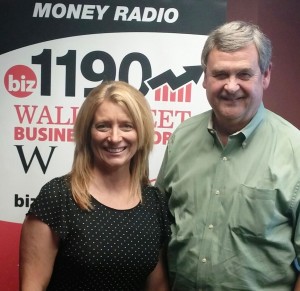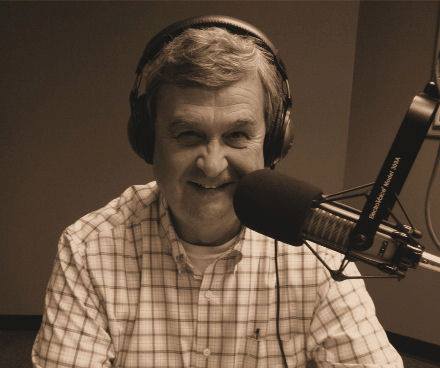Adapt or Die.. roll with the punch
 I can’t think of a single business that isn’t threatened in some manner by a changing business environment. This has always been the case; technology is just making the changes faster for most of us.
I can’t think of a single business that isn’t threatened in some manner by a changing business environment. This has always been the case; technology is just making the changes faster for most of us.
In 1967 Scientific Instrument manufacturer Keuffel & Esser interviewed a number of scientists as part of a study to gain an understanding of what the future might look like.
Some of their findings were startlingly prophetic. They predicted 3 D TV, electric cars, automatic controlled traffic lanes, and other innovations.
One thing they didn’t uncover however, was what was about to happen to their business. Keuffel & Esser was the country’s largest producer of slide rules. Somehow, they failed to take into account what the electronic calculator would do to their business.
 I first heard that story many years ago. There’s a certain nostalgia to it, because I went to school using a slide rule. But, the business lesson here is unmistakable, and is repeated all too often: you MUST stay atop changes and innovations in your market. You cannot sell slide rules in a calculator marketplace.
I first heard that story many years ago. There’s a certain nostalgia to it, because I went to school using a slide rule. But, the business lesson here is unmistakable, and is repeated all too often: you MUST stay atop changes and innovations in your market. You cannot sell slide rules in a calculator marketplace.
My own experience might prove helpful. When I first started Electronic Maintenance Associates (EMA Inc) I had a pretty clear and simple business model. Namely:
Become the warranty service center in the Southeast for a number of electronic motor drive manufactures.
Do an excellent job for them.
Use the warranty service as an entre’ into the facility, and expand the business.
It worked very well.. I picked up good and profitable business.
BUT.. that market changed. We still to this day do warranty service for manufacturers, but with the motor drives becoming less expensive and more reliable, that business model began to lose its appeal. IF we were still depending on that, I think we’d be out of business. Everyone has to roll with the punches.
Stanford Professor Charles O’Reilly says that companies and organizations need to have organizational ambidexterity. Defined, as the ability to keep your existing business going, while adapting to new opportunities and challenges.
That’s not as easy as it sounds. Abrupt change can destroy a company for a number of reasons. You can run off loyal customers, demoralize your people, and lose all economies of scale with your systems. I didn’t tell all of my warranty customers to get lost, we continued to serve that market, even as it was declining. We gradually moved into a different model.
That’s what O’Reilly means.. by organizational ambidexterity. Your successful strategy in the past, may in fact be the wrong thing to do in the future, but if you’re still getting business from it now, you have to keep it going for the present. Your other hand has to work on the future.
Innovation is often perceived as a threat to an existing organization. I’ve seen this not only in business, but in churches. Within your organization employees are likely to feel threatened.
That means that as the leader, you have to do what most of you hate most.. process. You must communicate the need for the change. (and by the way, don’t make this up, do your homework)
Shoving change down people’s throats is a recipe for disaster. Change may be completely necessary; just be sure your folks understand and embrace it.
There are many examples of companies that lost their edge by failing to respond to change.
Blockbuster was the ubiquitous video rental company. You saw them everywhere, and most people you knew used them. They had a great business. But, they misunderstood the threat that Netflix, Redbox, and video on demand posed. Had they understood it, they were well positioned to respond and keep their market.
But that’s the trick isn’t it? They didn’t roll with the punch and change; they stood flat footed and got knocked out.
How about companies that did change? Did you know, for instance, that Nokia is the world’s largest cell phone manufacturer? Did you know that Nokia was founded as a pulp and paper company? Talk about changing!
Dupont began manufacturing gun powder, but they rightly saw themselves as a chemical company. Because of that we have polyester, teflon, and many other great products.
Paypal began as a cryptography company. After years of trial and error, they emerged as the default online payment system for millions of people. Stanford’s O’Reilly encourages companies to do small “experiments” as a response to market changes. Not everything works. But, had Paypal continued as a cryptography company, probably none of you would know their name.
Changes come in many ways. If you’re in a maturing market, then you should expect the market to provide lower margins. As a general rule of business, hi volume markets = low margins, and low volume markets = high margins. The guy selling Fords will sell more units than the guy selling Lamborghini cars, but the latter will have much higher margins.
If you are in a hi volume low margin business, and intend to stay there, then you must adapt your business model.
Roll with the punches!
Eddie
Eddie Mayfield is the host of Driven to Business, heard 11 AM every Saturday on Atlanta’s business radio, Biz 1190. The show is streamed live on biz1190.com and podcast on eddiemayfield.com and Itunes.
Bill Haire with Travel Link
 Bill Haire is Vice President and Managing Partner of Travel Link, an American Express full service travel agency. Travel Link is one of the top travel agencies in the country. You can reach Bill at 615-277-5174, or at travelink.com .
Bill Haire is Vice President and Managing Partner of Travel Link, an American Express full service travel agency. Travel Link is one of the top travel agencies in the country. You can reach Bill at 615-277-5174, or at travelink.com .
It’s difficult to imagine an industry that’s seen more changes in recent years due to technology than the the travel business. Yet Bill and his team have not only survived, they’ve prospered; and, had fun doing it.
His story is a great lesson to all of us in business. Adapt to your changing environment, know who your prospects are, and provide excellent customer service.
I’ve done two trips with Bill and Travel Link. A recent trip to the Holy Land, and another to Russia. One can’t help but be impressed with the logistical proficiency and warm atmosphere that pervades the Travel Link organization.
Bill is a champion not only of his organization, but of the travel industry as a whole, encouraging young people to consider it as a fulfilling and rewarding career.
Driven to Business, hosted by Eddie Mayfield is heard every Saturday at 11 AM Eastern Time on Atlanta’s business radio, Biz 1190 AM. The show is streamed live on biz1190.com and podcast on eddiemayfield.com and itunes.
Simply the best business radio in Atlanta- Driven to Business.
Marketing: Sure we do that w Eddie Mayfield
 Sometimes it’s hard to face realities. One I had to face, as do many of you, is that the terrific personality we were born with may not be enough to sustain business growth. When I first started EMA, most of our business came from relationships I had nurtured.
Sometimes it’s hard to face realities. One I had to face, as do many of you, is that the terrific personality we were born with may not be enough to sustain business growth. When I first started EMA, most of our business came from relationships I had nurtured.
But, we needed more, and so we employed various sales people. At first, the results were disappointing and my tendency was to blame the sales person. I came to realize over time, that a big part of the problem was our lack of a strategic and coordinated sales and marketing system. We were forced into rectifying this, as many companies are forced into doing the right thing, when times got a little tough. While we certainly don’t know everything, we have enjoyed great success with our marketing programs, and we trust that in sharing them, it can benefit you.
On this Driven to Business episode, I’m going to address some common errors in marketing, and provide some practical tips to help you. My goal is to encourage you to do a better job at marketing your business (and perhaps AVOID the tough times that would force you into it.)
First; a little bit of definition. The terms “Sales” and “Marketing” are often interchanged, and they are indeed related. However, in a general sense, sales is more a push function, while marketing is a pull function.
Sales is meeting needs as opportunities arise in an individual method. This is often a person to person interaction.
Marketing is building a brand identity, and widely distributing information. When you walk into a prospect and they have heard positive things about you.. that’s good marketing.
Marketing cannot be separated from customer service, in fact, some would argue that customer service IS the driver of marketing, especially in a world where your business gets instant online reviews from websites like Yelp and others.
Regardless of the size of your business, or even if you are a non profit such as a church or other facility, establishing your brand and disseminating information is essential.
I start off with the very basics: Information is Marketing; Marketing is Information. We first of all need to establish the WHAT – WHEN – and WHERE of our message. This has to have more weight than how pretty our marketing literature or websites are.
I’m going to spend a fair amount of time talking about website marketing. I’m continually amazed at how even large companies and non-profits make simple errors in this area that cost them business and frustrated clients.
Give it a listen
Eddie
Driven to Business with Eddie Mayfield airs every Saturday at 11 AM on Atlanta’s business radio.. Biz 1190 AM. The program is streamed live on biz1190.com and podcast on eddiemayfield.com and itunes.
Simply the best business radio in Atlanta.. Driven to Business.
BlueHair Technology Group founder: Jane Ratliff
 Jane Ratliff is the founder and CEO of BlueHair Technology Group. BlueHair Technology Group is a nonprofit organization whose mission is to educate adult seniors about current technology and the tools available to them to connect and communicate with family and friends. By learning these skills, seniors will have a fun, comfortable, and convenient way to learn how to use technology, find information online, and stay alert and active.
Jane Ratliff is the founder and CEO of BlueHair Technology Group. BlueHair Technology Group is a nonprofit organization whose mission is to educate adult seniors about current technology and the tools available to them to connect and communicate with family and friends. By learning these skills, seniors will have a fun, comfortable, and convenient way to learn how to use technology, find information online, and stay alert and active.
Jane actually got the inspiration for BlueHair from her experience in teaching her aging mother to use technology. Jane’s group provides both videos and live seminars to seniors, teaching them to participate in social media, and lose their fear of modern technology. Visit her website at www.bluehairtech.org
Jane has a long and impressive career in both technology and business, and is an energetic and fun guest. Listeners will enjoy this program.
Driven to Business hosted by Eddie Mayfield airs every Saturday at 11 on WAFS, Biz 1190 AM radio. The program is streamed live on biz1190.com and podcast on both eddiemayfield.com and itunes.
Simply the best business radio in Atlanta.. Driven to Business.
So, you want to start a business?
 Starting a business is the fulfillment of the American dream for many people. I sometimes get asked for advice, and I always tell the prospective founders to take a hard look at what their day to day life will be like; even if the business is successful.
Starting a business is the fulfillment of the American dream for many people. I sometimes get asked for advice, and I always tell the prospective founders to take a hard look at what their day to day life will be like; even if the business is successful.
In this podcast I try and give some encouraging, but realistic steps that you can take as you start your new enterprise.
Driven to Business with Eddie Mayfield airs every Saturday at 11 AM on Atlanta’s Business Radio, WAFS, Biz 1190. The program is podcast on Eddiemayfield.com and on itunes. It is streamed live on biz1190.com
Simply the best business radio in Atlanta.. Driven to Business.
Rebecca Zeeuw: Using Linkedin for business
EMA Sales person, farmer, mother, wife,  and astute business woman; Rebecca and Eddie discuss her experiences and expertise at using Linkedin to build business relationships. Great show.
and astute business woman; Rebecca and Eddie discuss her experiences and expertise at using Linkedin to build business relationships. Great show.
Unstable Times.. and opportunities.. Eddie Mayfield
 One day in 1896 two Indians, Skookum Jim Mason, and Tagish Charlie, along with a White man named George Carmack discovered gold in Rabbit creek, near the remote Yukon town of Dawson. When the word got out, locals rushed out to stake claims. Later known as the Klondike Kings, many of them became very wealthy.
One day in 1896 two Indians, Skookum Jim Mason, and Tagish Charlie, along with a White man named George Carmack discovered gold in Rabbit creek, near the remote Yukon town of Dawson. When the word got out, locals rushed out to stake claims. Later known as the Klondike Kings, many of them became very wealthy.
Almost one year later, the steamer Portland arrived in Seattle with over a ton of Yukon gold aboard. The word got out, and the Klondike Gold Rush began.
It’s difficult to imagine the chaos that followed. Over 100,000 men and women set out for the Yukon, most of them ill prepared for what they would face. Only 30,000 got there.
I’ve been to Skagway, the beginning of the White Pass trail, where most of the gold seekers passed on their way to Dawson. The Canadian Mounties required each person to carry a year’s supply of food, which made the arduous journey over the pass a backbreaking affair. Thieves and con men took full advantage of the tired inexperienced travelers, and exhaustion, cold, disease, and malnutrition claimed the lives of many.
Of the 30,000 that did get to Dawson, very few found gold.
But, there were fortunes made during the Klondike Gold Rush, and not just from gold. One notable example is a German immigrant named Fredrick Drumph, who opened a restaurant and hotel serving the gold seekers. Drumph took his earnings, moved to New York, invested in real estate, and changed his name to Trump. He’s the grandfather of billionaire Donald Trump.
A young man named Jack London came looking for gold, but instead made a fortune writing about his exploits. A lady named Martha Black ran a sawmill, and eventually became a wealthy member of the Canadian parliament. There are many other similar stories.
Great lessons are to be learned from this. When I lived in Texas friends of mine in the oil business offered valuable counsel. They said that whenever I heard about an oil field producing a lot of barrels per day; get in the barrel business.
The other great advice I got from the entrepreneur I worked for there was this: “every boom has a bust.”
So, what can we learn from the Klondike experience?
- In a boom, the first people in often make the direct money
- All booms end
- The indirect money often exceeds the direct.
Let’s use the oil fields as an example. It is possible for an individual to drill for oil, and sell what he finds, but most that try that fail. Most of the opportunities are indirect.
Generally, the oilfield segments are described as upstream, midstream, and downstream.
The upstream is where the oil is drilled and produced. The midstream is how it gets to market, whether by rail, trucks, or pipelines. The downstream is refineries, packagers, distributors, etc.
Each segment can provide great business opportunities for small businesses, in both bad times and good. In fact, unstable times are often good for small, well managed nimble companies with expertise.
During unstable times, large companies often elect to outsource a number of functions. This can present great opportunities for small skilled operations. Our company, EMA, often sees our service revenues climb during times of economic instability.
Companies may elect to use old equipment in lieu of expending capital, and if you have the ability to keep that older equipment running, then you have a built in marketplace.
Modern technology has really leveled the playing field for smaller companies to compete, even on a global scale.
Here’s a few hints to help you prosper during instability:
- Use Linkedin, blogs, and Twitter to establish yourself as an expert in your field. Always approach these as the value that you bring to the prospect or customer, not what value they bring you.
- Pursue opportunities to speak at industry gatherings.
- Do webinars and lunch & learns.
Keep in mind that you may well be living in the new normal, and if you’re going to be successful, you must learn to embrace these times.
Eddie Mayfield
Driven to Business, hosted by Eddie Mayfield is heard every Saturday at 11 on Atlanta’s business radio, Biz 1190. The show is streamed live on biz1190.com and podcast on eddiemayfield.com and itunes. Simply the best business radio in Atlanta, Driven to Business.
Isaac Mendoza, Mic Productions
 Isaac Mendoza is a producer at WAFS (Biz 1190) Radio in Atlanta, and runs a media marketing and consulting firm, Mic Productions. (see micproductions.com) Isaac and his team are rapidly gaining a reputation as experts in the new media fields, including social media such as Twitter, Facebook, Periscope, Linkedin, and others.
Isaac Mendoza is a producer at WAFS (Biz 1190) Radio in Atlanta, and runs a media marketing and consulting firm, Mic Productions. (see micproductions.com) Isaac and his team are rapidly gaining a reputation as experts in the new media fields, including social media such as Twitter, Facebook, Periscope, Linkedin, and others.
Many business people are failing to grasp the realities of the “new” normal in which we live. Where people will check you out online before doing business with you, where employers look at your facebook page prior to hiring, and a time where what a google search says about your business outweighs any other marketing you may have done.
It requires engagement, and Isaac has great advice and practical tips for businesses of all sizes.
Driven to Business hosted by Eddie Mayfield is heard every Saturday morning at 11 on Atlanta’s business radio, Biz 1190 AM. The show is podcast on eddiemayfield.com and Itunes, and is streamed live on biz1190.com .
Simply the best business radio in Atlanta.. Driven to Business
Motivated Employees: How and Why
 You don’t build a business.. you build people and they build a business Zig Ziglar
You don’t build a business.. you build people and they build a business Zig Ziglar
Everyone has the sordid experience of walking into a business where the employees obviously don’t want to be there. You remember; you walk in, employees are either staring into space, or talking on the phone, or talking to each other, and refusing to acknowledge your presence much less try to serve you. The term “motivated” doesn’t come to mind.
One dictionary definition of motivated is the “state of being eager to work.”
You’ve probably had the opposite experience as well. Where you were energetically greeted with a smile, and it was obvious they were happy you were there.
What kind of business or organization do you want to lead? Because, in truth, it is up to you.
The Harvard Business Review published “Employee Motivation: A Powerful new Model” in their July-August edition of 2008. They attempted, in a well researched article, to “peek under the hood” of the human brain, and answer some questions about what actually motivates us.
The researchers listed four primary drivers of employee behavior:
- The Drive to Acquire: (material goods, or intangibles such as social standing)
- The Drive to Bond: (form meaningful connections with others)
- The Drive to Comprehend: (satisfy innate curiosity about the world around us, and make sense of it)
- Drive to Defend: (protect against external threats and promote justice)
We are all driven to acquire goods and or social standings that bolster our sense of well being. We experience delight when this happens, and disappointment when it doesn’t. Our assessment of this is relative; we always compare what we have with what others have.
The Drive to Bond applies not only to bonding with other people, but to organizations. People enjoy feeling that they are part of a larger good. This drive, when met, leads to positive emotions such as love and caring, and a boost in motivation when employees feel proud of belonging to the organization. This is also why very negative feelings erupt when the institution betrays them.
The Drive to Comprehend means that we want to make sense of the world around us. We become frustrated when it does not, and invigorated when it does, especially by doing by meaningful work. Employees are demoralized by monotonous jobs and environments that appear senseless.
The Drive to Defend is because we naturally defend ourselves, our property, and our accomplishments. We defend our family and friends, and our ideas and beliefs. At work, this often manifests itself as feelings of security and confidence. This also explains why people resist change.
One thing that became very clear in their research, is that you can’t increase satisfying one drive at the expense of another. It doesn’t work. For instance, you can’t just pay more (drive to acquire) for boring meaningless work and expect long term motivated employees. You have to deal with all of the drives.
“Why people work anyhow”, has been studied extensively. In 1960 MIT professor, Douglas McGregor wrote that most managers had the following assumptions:
- Humans dislike work and will avoid it if possible
- Because of this, they must be coerced, controlled, directed, or threatened to force them to work.
- The average person prefers to be directed, wishes to avoid responsibility, has little ambition, and values security above all else.
McGregor challenged those assumptions, and proposed these instead:
- Work is as natural as play or rest to human beings
- People will, on their own, exercise self direction and self control in service of objectives to which they are committed.
- The average person learns, under proper conditions, to not only accept but seek additional responsibility.
- A high degree of imagination, ingenuity, and creativity is widely distributed in the population.
- Modern Industrial life under-utilizes the intellectual abilities of the average person.
McGregor’s concepts became the foundation for modern motivational techniques, and they remain so today.
Here’s some practical hints for motivating employees:
Give employees as much autonomy as possible. No one likes being micro managed.
Engender a sense of ownership to employees. When people begin referring to “my” company, and taking pride in it, you’ve come a long way.
Let everyone see the big picture, and in fact, as much as possible, let people see jobs from beginning to end. The term is “task identity.” When someone cannot see the end result of their work, they are much less motivated to work.
Involve staff in making decisions that affect them. And avoid burdensome and unnecessary rules and regulations that stifle and annoy employees.
Communicate, communicate, communicate. Be sure your folks know what is going on, and how their contributions contribute to the overall mission.
And perhaps most importantly.. care. Employees do not like being used, they want to know you care for them as people, not cogs in your wheel.
As Einstein famously said, “I want to know God’s thoughts, the rest are details.” You may find this surprising, but I feel the same way about studying human motivation, marketing, and leadership. I think these studies are, in effect, trying to unravel God’s thoughts on our design.
I find myself surprised, and then, surprised that I’m surprised, to discover that good leadership, motivational, and business practices are the same concepts presented to us in the Bible and traditionally held in the Christian culture.
To list a few:
- People have inherent value, so much so that God gave His son to pay for our shortcomings.
- Since people have value, we should value them. And not for what they can do for us, but simply because of God.
- People have another drive, not listed in the Harvard Business Review, although it is alluded to. It’s knowing that we answer to a higher power, and are responsible to Him.
- Understanding these concepts, and living them, gives life meaning and purpose, far beyond business dealings.
Eddie Mayfield
Driven to Business, hosted by Eddie Mayfield airs every Saturday morning at 11 on Atlanta’s Biz 1190. The program is streamed live on biz1190.com and and podcast on eddiemayfield.com and itunes. Simply the best business radio in Atlanta.. Driven to Business
Building Great Business Relationships
 Assuming that you have the chance to lie on a deathbed ( as Jerry Seinfeld quipped: “who on earth would get in one?“) and evaluate your life, I can assure you that it will be judged by you, and everyone else, in terms of relationships.
Assuming that you have the chance to lie on a deathbed ( as Jerry Seinfeld quipped: “who on earth would get in one?“) and evaluate your life, I can assure you that it will be judged by you, and everyone else, in terms of relationships.
Nothing is really more important. Those relationships are with God, family, friends, and yes, even business people. In fact, in terms of business, it is my contention that absolutely nothing is more important than developing long term relationships.
I recently had the opportunity to have dinner in Vienna Austria with a long time customer. Our company, EMA Inc. , has for years repaired, supplied, and serviced electronic motor drives. Many years ago we got in a unit for repair, manufactured by a company we didn’t know in Austria. Following that repair, we sent a fax (remember, this was years ago) to the company asking if they needed a North American service center.
We’ve done directly and indirectly over a million dollars in business with them since. The Austrian company was recently purchased by a large multinational corporation, but due to our relationships there, we’re still doing, and in fact, expanding our business with them.
The gentleman I was dining with has been a major part of us getting that business, and we talked about our relationship and how it had grown and deepened over the years. It’s a relationship that was built, and still stands, on trust.
Every good and profitable relationship is built on that.
We live in a seemingly digital impersonal world, but don’t ever believe that. Malcomb Gladwell, in his book Tipping Point makes the comment toward the end of the book that in his opinion, we are in fact re-entering the age of word of mouth. I’m not sure we ever left it, but think about yourself for a moment.
If you are looking for a place to eat lunch, which has the most influence on you? An advertisement you saw, or the recommendation of a coworker you trust? That “relationship” based referral far outweighs any advertisement.
It can also work against you. An unhappy customer talking about your business can destroy any chance you have of doing business with anyone inside that person’s sphere of influence.
Here’s another thought.. it’s a lot more enjoyable to do business with people with whom you have a good relationship isn’t it? And that’s true regardless of whether you are supplying the product or service, or consuming it. It’s also the trick to long term business success.
It’s the secret to overcoming problems, and every business, including yours, will occasionally have problems. John Maxwell talks about “Big Mo” or momentum. If you have a great relationship with a customer, and a problem arises, then it tends to remain a small and contained problem. On the other hand, if you have little or no relationship with that customer, that little problem will become a much bigger one.
So, how does one go about building long lasting, positive relationships?
Here’s a few ideas.
Jeffery Gitomer wrote a great little book called “The Little Black Book of Relationships” in which he talks about exactly that. His number one rule.. it’s NOT about you.
If you approach relationship building with the idea of what you can get out of it, the other person is going to think they’re being used, and no one, responds well to that.
Gitomer talks about giving value to people, John Maxwell talks about adding value to people, but they both mean the same thing- Try to enrich people’s lives. How do you do that?
Well, start off by being friendly and recognizing their accomplishments and skills. I’m not talking about phony brown nosing, I’m talking about actually noticing what people do well, and how they do it. When someone does a great presentation, instead of just applauding and walking to your car, seek them out and tell them how much you enjoyed it. And make a habit of doing this whether or not that person is in a position to benefit you. Gitomer is right, it’s NOT about you.
Become a resource to a customer, far beyond the service or product you provide. If you see an interesting article about their business, send it to them. Offer to help in ways that do not directly benefit you, but benefits them.
If you find a common interest, then use it to enhance the relationship. Let’s say you play guitar, or golf, or are a big baseball fan. Find those common points and build a relationship around it, even (and again) when it does not directly benefit you.
Above all.. be trustworthy. If you make a promise .. KEEP IT at all costs. Do not fudge on the truth.. if your product isn’t great at some little aspect of the business, then tell them that. Daniel Pink in “To Sell is Human” suggests that the best and most effective sales pitches are those that include something slightly negative about your product or service. This is because trustworthy people don’t lie about their products and services.
Gitomer again, has a great line in which he asks you to think about a customer you WISH you had. Then he says, the primary reason you don’t have that customer is that someone has a better relationship with them than you do. Maybe a hard dose of medicine to swallow for some of us, but true nonetheless.
Believe me, your business life will get a lot easier once you’ve built meaningful and deep relationships with your customers and vendors. So do it.
Eddie Mayfield
Driven to Business with Eddie Mayfield airs at 11 AM every Saturday on Atlanta’s business radio, Biz 1190 AM. The show is streamed live on biz1190.com and is podcast on eddiemayfield.com and
Simply the best business radio in Atlanta.. Driven to Business.



